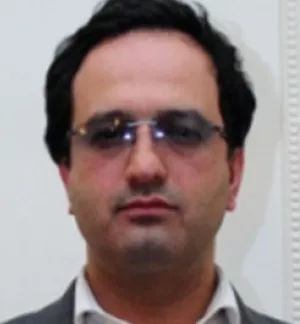Abstract
This article investigates the main roots of tension between Iran and the United States in the post-9/11 Middle East. Since 9/11 and especially after the 2003 Iraqi crisis, Iran's role has sharply risen in the region. The evolution of Iran's role and power in the regional system has led Iran to seek a bigger weight and role more in tune with its acquired stature and capabilities. The conflict between Iran and the United States has been generally attributed to either a political-ideological clash and mutual hatred, or to a simple aggregation of a number of distinct policy disputes including: Iran's nuclear program, Iran's state support for organizations that Washington regards as terrorist groups, human rights issues, and Iranian involvement in the new Iraq, the Levant, and Afghanistan. While accepting these explanations, the author takes a step further and argues that the conflict, especially since 2003, has been essentially focused on a dispute over the growth of the two sides' role in Middle Eastern politics which both regard against each other's national interests and security. The author concludes that complex and interdependent nature of regional security necessitates, on the one hand, Iran's cooperation in the wake of the end of the U.S. combat role in Iraq in Summer 2010, and on the other, that the United States recognize and respect Iran's legitimate security concerns and accept the evolution of Iran's role in the region
INTRODUCTION
What is the root cause of the increased level of conflict between Iran and the United States in the post-9/11 Middle East? The conflict has been generally attributed to either a political-ideological clash and mutual hatred, or to a simple aggregation of a number of distinct policy disputes including Iran's nuclear program, Iran's state support for organizations that Washington regards as terrorist groups, human rights issues and Iranian involvement in the new Iraq, the Levant, and Afghanistan. While accepting such arguments, I maintain that the conflict, especially in post-invasion Iraq, has been essentially focused on a dispute over growth of the two sides' role in Middle Eastern politics which both regard against each other's national interests and security. With the geopolitical shifts in the region, Iran seeks a bigger weight and role commensurate with its acquired stature and capabilities. Iran's increased role is due to its geo-strategic position in proximity with regional hot spots such as Afghanistan, Iraq, Lebanon, and Palestine, along with its dynamic Shia ideology; elements that have accorded actual manifestation and meaning to Iran's regional role. At the same time, the United States, as the sole remaining power with global hegemonic reach, and vast engagement in the affairs of the Middle East — and the Persian Gulf — continues a dogged policy of refusing to recognize Iran's regional power status; a policy geared in action to containing and constraining Iran's role and influence in the region....
The entire article may be downloaded below.
Barzegar, Kayhan. “Roles at Odds: The Roots of Increased Iran-U.S. Tension in the Post-9/11 Middle East.” Iranian Review of Foreign Affairs, Fall 2010
The full text of this publication is available via Iranian Review of Foreign Affairs.


